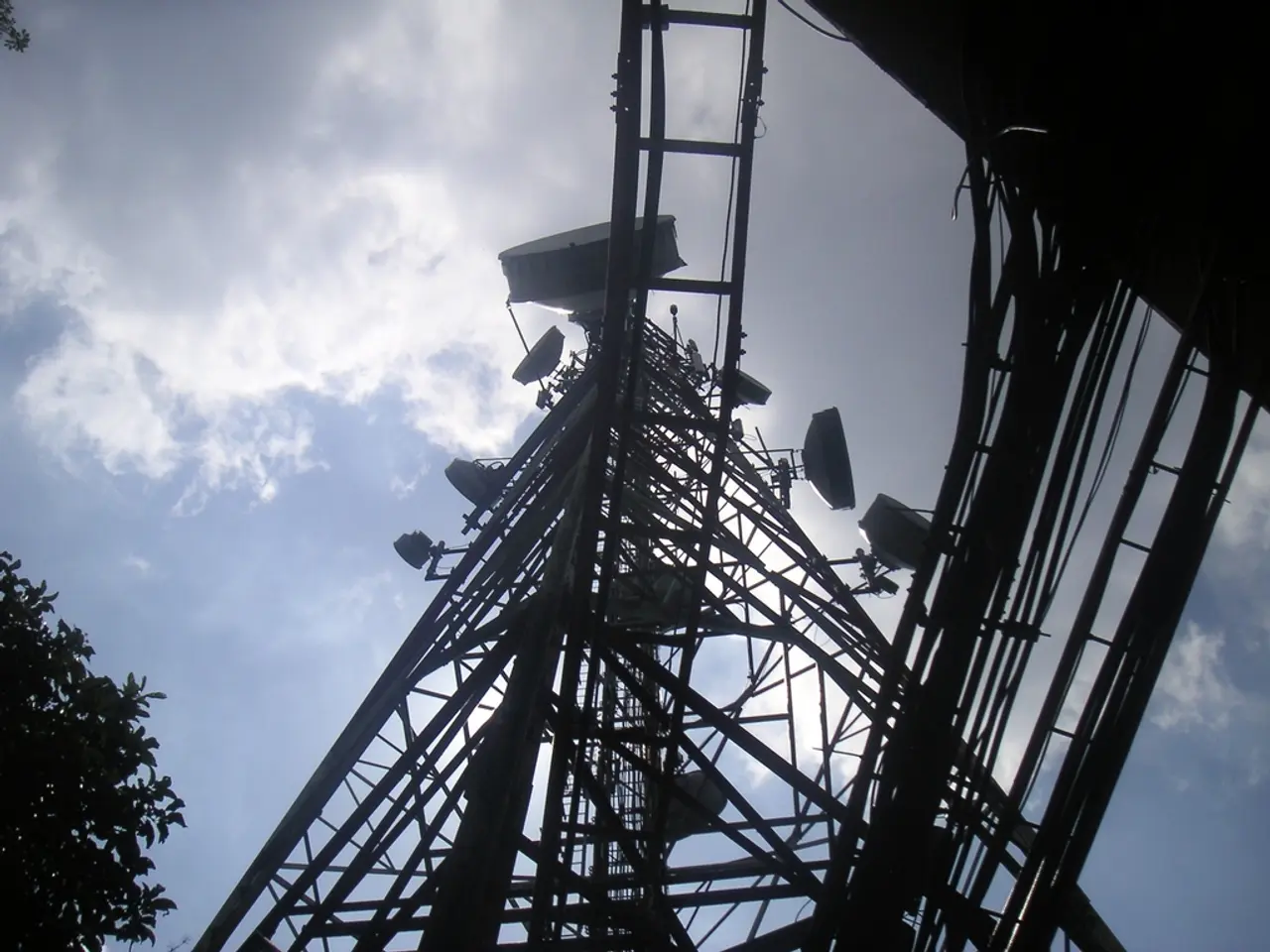Starlink, Elon Musk's internet satellite service, receives approval for disrupting and enhancing internet connectivity in India.
In a significant development for India's digital landscape, SpaceX's Starlink has received final approval to launch satellite internet services in the country. This approval marks a major milestone in India's ambition for universal access and could potentially revolutionize internet access, particularly in rural and remote areas.
As of mid-2025, Starlink has secured the necessary regulatory approvals, including a Unified Licence from India's Department of Telecommunications (DoT) and clearance from the Indian National Space Promotion and Authorization Centre (IN-SPACe). However, its full-scale commercial launch depends on obtaining a trial spectrum and meeting final security compliances from the DoT.
Starlink's satellite internet service, based on its Generation 1 low-Earth orbit constellation with thousands of satellites, aims to provide broadband speeds up to 200 Mbps. The Indian government anticipates Starlink mainly targeting rural and remote areas that lack traditional broadband infrastructure, potentially complementing—not competing with—existing terrestrial telecom providers such as Jio, Airtel, and BSNL.
The entry of Starlink has the potential to shift the paradigm of internet access in India. The affordable high-speed, low-latency broadband offered by Starlink could deliver significant change in education, health, and commerce to disadvantaged communities in India. However, government officials note that the scale of Starlink’s service (up to 2 million connections) and its relatively higher cost compared to mobile data will limit its direct competition with existing telecom services and restrict its reach to niche markets requiring satellite broadband.
Starlink will operate alongside other satellite internet providers such as Bharti-backed Eutelsat OneWeb and the Reliance Jio-SES joint venture, all awaiting spectrum allocation for rollout. Industry experts doubt satellite internet will replace existing networks in hard-to-reach territories like the Himalayas and the Northeast. Nevertheless, Starlink's technology is next-generation and could significantly improve rural connectivity by delivering internet services where ground-based networks are limited or uneconomical.
This approval comes after years of bureaucratic delay and is a welcome development in India's push for digital inclusion. The Indian government estimates that Starlink could service up to 2 million customers in the first phase. The coming decades could see India leading the world in innovation, as Starlink's entry could potentially narrow the digital divide by improving digital access in underserved regions.
Notably, India has seen a significant increase in internet subscribers, with 970 million subscribers and 5G coverage in 99.6% of all districts. The digital landscape in India is poised for a transformation with Starlink's entry. In July 2025, Starlink received final approval from the IN-SPACe, and in June 2025, it received a Unified License from the DoT of India.
The BSNL, one of India's leading telecom providers, has reported profitability for the first time in 18 years. This profitability, coupled with the entry of Starlink, could further propel India's digital growth and contribute to a more connected and inclusive India.
References:
- SpaceX's Starlink Gets Final Approval to Launch Satellite Internet Services in India
- Starlink India: Elon Musk's satellite internet service gets approval to enter Indian market
- Starlink's India Entry to Benefit Rural Areas, Complement Existing Providers
- Starlink India: SpaceX's satellite internet service to target rural areas, says government
- The entry of Starlink's satellite internet service in India signals a potential shift in the general news landscape, particularly for the space-and-astronomy sector.
- In the realm of finance, the Indian government anticipates that Starlink's satellite internet service will mainly target rural and remote areas, potentially creating new business opportunities in these regions.
- As technology advances, the introduction of Starlink in India could have far-reaching implications in various sectors such as education, health, and commerce, especially focusing on science and technology improvements in underserved regions.




